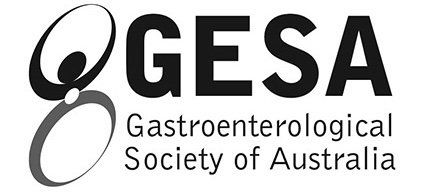
Colonoscopy
What are the indications for a colonoscopy?
Colonoscopy is indicated for
- Investigation of symptoms such as abdominal pain, altered bowel habits, chronic constipation, chronic diarrhoea, rectal bleeding and weight loss
- Screening for colorectal cancer
- Surveillance for polyps & cancer if there is a previous personal history
Colonoscopy is considered to provide the most accurate assessment of the colon. However, no test is perfect and there is a risk that an abnormality may not be detected. A colonoscopy can miss lesions in around 5% of cases.
How do I prepare for a colonoscopy?
Bowel preparation
You will need to follow a special diet and take bowel preparation medication before your procedure. Printed instructions will be provided at time of your booking, or click here for instructions.
Fasting
You will need to stop drinking and eating for approximately 6 hours before the procedure. The hospital will contact you 1 working day prior to your procedure to advise fasting time.
Medications
You will be given instructions about when to stop your blood-thinning and diabetes medications.
How is a colonoscopy performed?
Colonoscopy is performed under a light anaesthetic (sedation). A sedative medication is given through a vein in your forearm. Once sedated and lying in a comfortable position on your left side, the endoscope is passed through the anus and guided through the colon. Once the endoscope has reached the opening to the small bowel, it is slowly withdrawn and the lining of the colon is examined again. In some patients, it may not be possible to navigate the endoscope through the full length of the colon - in such cases, further tests may be required.
Biopsy
If abnormal tissue is seen during the procedure, a biopsy (a small piece of tissue) may be taken by forceps passed through the endoscope. The tissue is sent to a pathologist for examination under a microscope.
Polypectomy
A polyp is an abnormal growth extending from the inner wall of the colon. They vary in size from one millimetre to a few centimetres and can develop into cancer if left untreated. If a polyp is seen during the procedure, it may be removed using special instruments passed through the colonoscope. The tissue is sent to a pathologist for examination under a microscope. Sometimes a polyp may not be removed endoscopically because it is too large or too difficult to reach - in such cases surgery may be required.
What happens after the colonoscopy?
You will be monitored in the recovery area until the effects of the sedative medication have worn off. You may feel bloated because of the air inserted during the procedure and this will pass over the next few hours. Rarely, you may pass a small amount of blood, especially if biopsies are performed.
Because of the sedation given, it is important that you do not drive, operate machinery, drink alcohol or make important decisions for 24 hours. A carer will be required to take you home. Full recovery is expected by the next day.
Dr Krishnan will inform you of your test results on the day of the procedure. A follow-up appointment may be made to discuss the test results more fully. The results of any biopsies will usually take 1 week.
What are potential complications of colonoscopy?
Colonoscopy is a safe procedure. Despite the highest standard of practice, complications can occur. The following possible complications are listed to inform not to alarm. There may be other complications that are not listed.
- Bleeding
- Infection
- Perforation of the colon
















